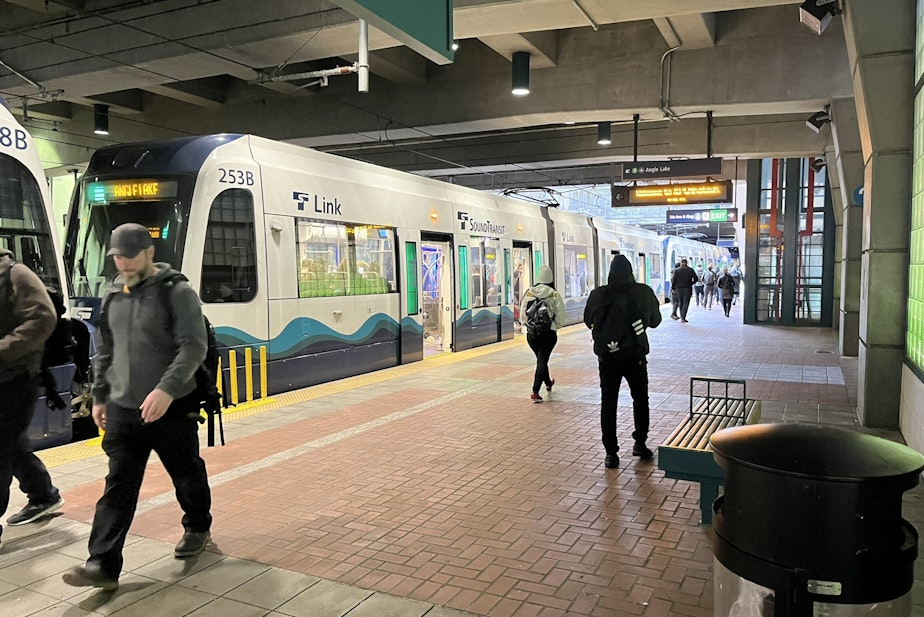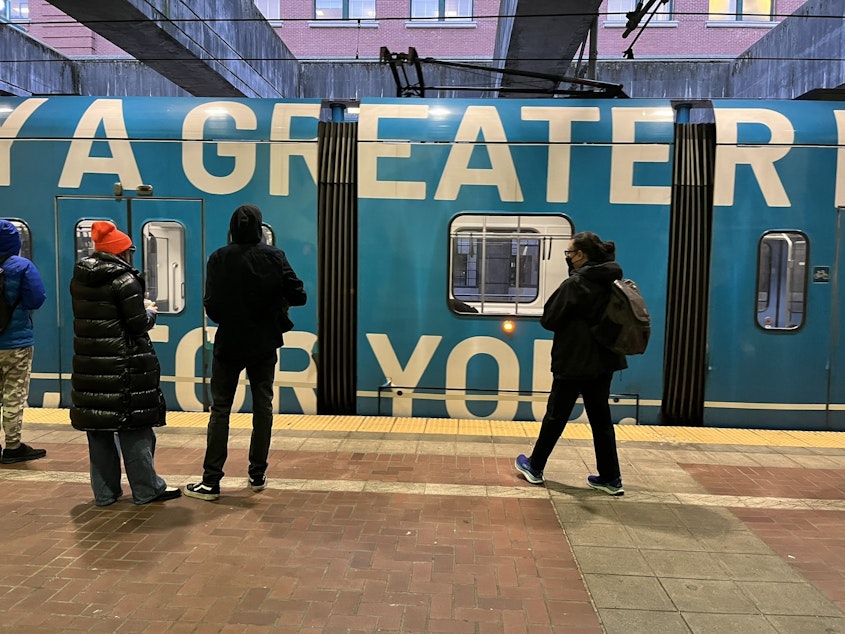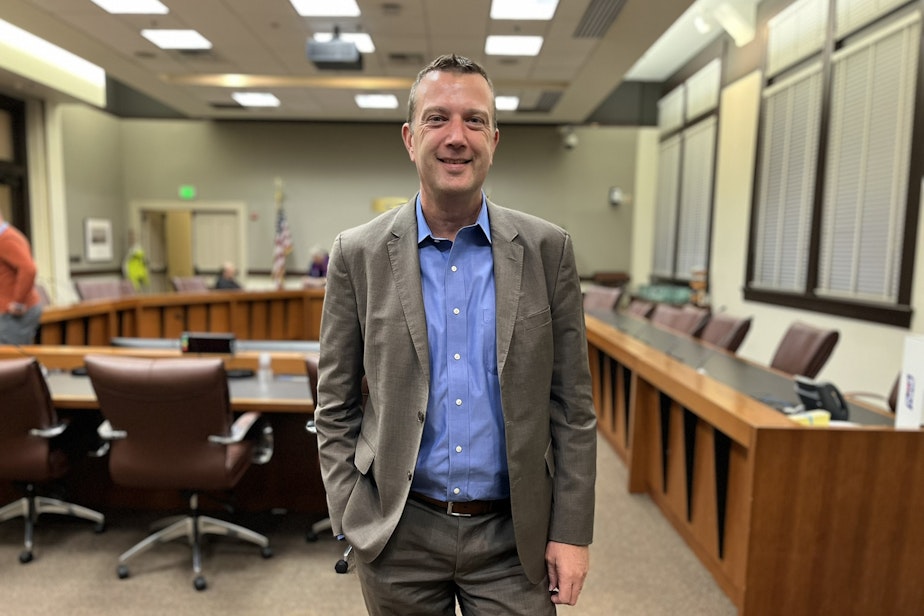Seattle light rail is about to get heavy for those who don't pay the fare

If you ride light rail in the Seattle metro area this holiday season, be sure to bring your ORCA card, and tap the card as you enter the station.
Starting Wednesday, Sound Transit is ratcheting up its fare enforcement policy, and issuing fines for the first time in two years.
It’s a big change.
I
an Stern is a fare ambassador for Sound Transit. He steps on a train and announces himself.
“Today, I'm going to be inspecting fares," he tells the light rail passengers. "My partner at the other end, Tien, is going to be doing the same thing that I am.”
RELATED: Sound Transit will start issuing tickets to riders who don't pay their fare share
A voice from the train intercom announces, “Next stop, Pioneer Square."
Sponsored
“I'll begin at the blue door in the back and make my way towards the middle of the car," Stern adds.
He checks people’s cards in a little machine to make sure they’ve paid the fare, which can range from $2.25 to 3.50, depending on how far they’re travelling.
Sponsored
“You're all good. Thanks so much," Stern says. "You're all good. Have a good rest of your day.”
Riders have mixed opinions about the change. Danny Hawkins spends a lot of time on light rail.
“I think it's a good thing," Hawkins said. "I mean, if the money goes to what it's supposed to — to keep this clean and, and cared for — then I'd say, you know, I'm not against it.”
Austin Mayo and Ali Setterquist are worried about the expense.
Sponsored
“Yeah, I mean, that just sucks," Mayo says. "We don't pay at all.”
“We're just not doing too hot financially right now," Setterquist adds. "So, because of that, it's just like yet another thing that we have to pay for."
There is a program offering reduced fares for people on limited incomes. Some service organizations give out those fare cards for free.
Elhadj Barry is a refugee with no income. He says he applied for a card like that, but the card never arrived.
“They didn't send me. I don't have my card," he said. "I'm going to apply again."
Sponsored

Sound Transit is increasing fare enforcement because fares are an important part of its budget.
Before the pandemic, fares made up about a third of Link light rail’s operating costs.
Today, fares account for less than half of what they previously covered in light rail's budget.
The current goal is to get things above where they were pre-pandemic. Sound Transit had stopped issuing fines out of concern for fairness.
Sponsored
Sponsored
A study had found that fare enforcement was falling hardest on Black riders, many of whom were getting tangled up in the courts. The new approach is more compassionate, the agency says. The fines escalate gradually, starting with a $50 fine for the third violation.
And there are lots of ways people can resolve the fines, even if they're not able to pay them, like taking a class online or joining a Sound Transit focus group.
At the fifth violation, the unpaid fares go to the courts.

Sponsored
Back on the train, Fare Ambassador Ian Stern is explaining the fares to someone who didn’t pay.
Afterwards, Stern describes what happened.
“Yes, it was an issue with somebody forgetting to tap on their ORCA card before they got on the train,” he said.
That passenger got a warning and an earful of friendly advice.
The new informative and forgiving approach is what makes the new policy different from past fare enforcement strategies, according to Sound Transit Deputy CEO Russ Arnold.
“The team is focused on really caring for the passengers and giving them support and help to get to be able to use the system," Arnold said. "And I think that's just a different foundational mentality than when your mentality is trying to engage and almost catch people who are not using fares.”
The new fare enforcement policy at Sound Transit is ramping up as many other transit agencies are making transit free for everyone. According to a new report by The Seattle Times, 16 transit agencies in Washington state have made that move.
RELATED: Public transit is now free for King County youth. But what happens when you turn 19?
But in the end, that's a political decision for elected leaders like King County Councilmember Joe McDermott, who sits on the Sound Transit board.

“I think it's premature to be making any changes to fair enforcement policies before we've actually given the policy we adopted a chance to work," he says.
McDermott says if fares were to disappear completely, Sound Transit would need another source of funds.
When the ambassador program is fully staffed, the agency hopes to inspect 10% of all rides. The program will cost around $700 million over the next two-plus decades.

